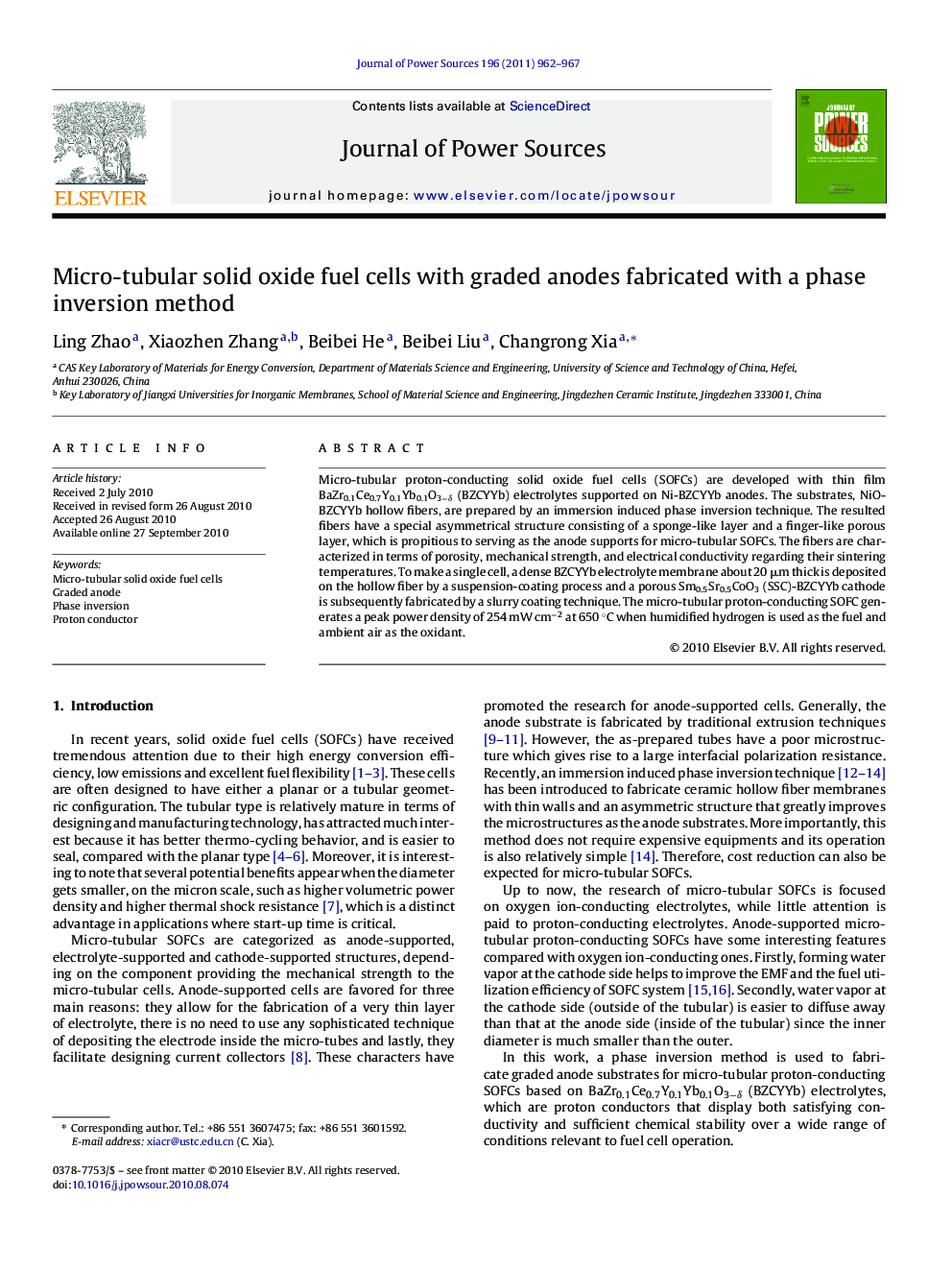| Article ID | Journal | Published Year | Pages | File Type |
|---|---|---|---|---|
| 1289576 | Journal of Power Sources | 2011 | 6 Pages |
Micro-tubular proton-conducting solid oxide fuel cells (SOFCs) are developed with thin film BaZr0.1Ce0.7Y0.1Yb0.1O3−δ (BZCYYb) electrolytes supported on Ni-BZCYYb anodes. The substrates, NiO-BZCYYb hollow fibers, are prepared by an immersion induced phase inversion technique. The resulted fibers have a special asymmetrical structure consisting of a sponge-like layer and a finger-like porous layer, which is propitious to serving as the anode supports for micro-tubular SOFCs. The fibers are characterized in terms of porosity, mechanical strength, and electrical conductivity regarding their sintering temperatures. To make a single cell, a dense BZCYYb electrolyte membrane about 20 μm thick is deposited on the hollow fiber by a suspension-coating process and a porous Sm0.5Sr0.5CoO3 (SSC)-BZCYYb cathode is subsequently fabricated by a slurry coating technique. The micro-tubular proton-conducting SOFC generates a peak power density of 254 mW cm−2 at 650 °C when humidified hydrogen is used as the fuel and ambient air as the oxidant.
